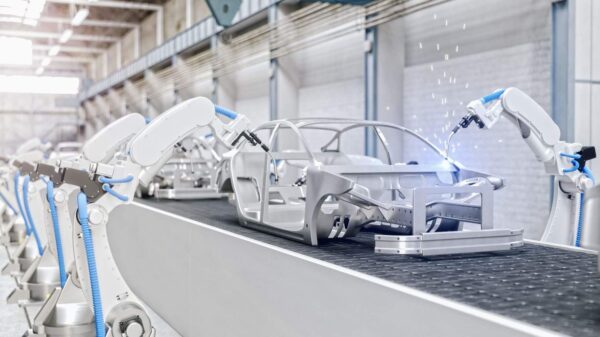
The Song Beverly Consumer Warranty Act applies to new, pre-owned, leased, and purchased vehicles from a California dealership, under 10,000 pounds, for family use, and under certain circumstances, for business use, as long as the issue or issues arise during the car manufacturer’s original warranties, and the consumer has presented the car to a car manufacturer’s authorized service center a reasonable number of times, which is generally considered two times.
Under the Song Beverly Consumer Warranty Act, the car manufacturer is obligated to deliver to the consumer a vehicle that conforms to the car manufacturer’s express warranties. If a California consumer buys or leases a car from a California dealership, and the car does not conform to the car manufacturer’s express warranties, the car manufacturer is responsible for repairing the consumer’s vehicle to conform to those express warranties. The car manufacturer has a reasonable number of attempts to fix these defects or non-conformities. If the car manufacturer does not fix these non-conformities in a reasonable number of attempts, the consumer may have a claim against the car manufacturer. If the consumer prevails in his or her lemon law claim against the car manufacturer, the car manufacturer must repurchase the non-conforming car or replace it, and must also pay the consumer’s reasonable attorney’s fees if the consumer used an attorney to handle their matter, and the consumer prevails in his or her lemon law claim against the vehicle manufacturer.
A Vehicle Lemon Law Claim is a Claim Made Against the Vehicle Manufacturer
When a consumer makes a lemon law claim, generally the consumer is making a claim against the manufacturer of the vehicle because the vehicle the consumer bought did not live up to the express warranties and promises the vehicle manufacturer made to the consumer, and thus, the vehicle ostensibly did not live up to the expectations the consumer had regarding the vehicle when the consumer bought it.
Another way to think about this is to think of a lemon law claim like this: A vehicle manufacturer puts a vehicle onto the stream of commerce to be sold at retail. The vehicle manufacturer makes promises to someone, you, the consumer of the car, in the form of express warranties. Express warranties are generally written but can be verbal warranties regarding how a vehicle would behave. A written warranty can be “30 miles per gallon,” for example.
If over the course of the use of the vehicle, the vehicle does not perform at “30 miles per gallon,” but for example, performs at 20 miles per gallon, and the consumer takes the vehicle for repair to conform to that express warranty a reasonable number of times or attempts, and the vehicle still continues to exhibit the nonconformity (the vehicle does not perform at “30 miles per gallon”), the vehicle manufacturer may have breached the express warranty, and the consumer perhaps may have a claim under the Song Beverly Consumer Warranty Act, if the consumer meets other criteria as well.
What Documents Does a Consumer Need to Prove a Lemon Law Case?
The most critical evidence is the vehicle’s work repair order, followed by proof of ownership. Proof of ownership is important because the vehicle manufacturer will verify whether the consumer still owns the car that is the subject matter of the dispute and whether the consumer bought the vehicle from a California car dealership at retail.
The Song Beverly Consumer Warranty Act does not apply to private party purchases. Nevertheless, even if a consumer bought a used car in a private sale, some attorneys will take on these types of cases if the consumer/purchaser can get the seller’s “lemon law rights” assigned to them. This is why a consumer needs to contact a competent lemon law attorney before embarking on a quest with the vehicle manufacturer themselves. A consumer does not need to physically possess the vehicle that is the subject matter of the dispute. Nevertheless, the car itself is important evidence that the car was/is a lemon.
The Vehicle’s Work Repair Order
The single most important document to prove a lemon law claim is the vehicle’s work repair order. The reason for this is that this is the consumer’s primary evidence to prove the consumer’s case. This is why it is vital that when a consumer drops off their vehicle for repairs at a vehicle manufacturer’s authorized repair shop, that the consumer conveys to the dealership all the problems and concerns the consumer has with their vehicle.
Often, a consumer may convey concerns to the dealership only to discover later that the dealership did not write down all of the problems on the work repair order. As a result, the vehicle was not checked for those particular issues, or if it was checked, the issues were not documented.
As far as the vehicle manufacturer is concerned, it did not happen if it is not written down on its work repair order. This is why it is extremely important to communicate all the concerns to the dealership regarding the vehicle.
Secondly, before leaving the dealership, a consumer should make sure that the vehicle’s work repair order reflects all the problems the consumer has regarding the vehicle. Remember, the vehicle’s work repair order is the single most important document to present to the vehicle manufacturer to prove a lemon law case. Furthermore, and extremely important, if the vehicle has a safety issue, the consumer would want to get this addressed immediately.
The Vehicle’s Purchase Contract or Lease Agreement and Vehicle’s Registration
Secondary to the vehicle’s work repair order, the vehicle’s purchase contract or lease agreement, along with the current vehicle’s registration, are essential documents not necessarily to prove the lemon law case but to start one.
To make a lemon law case, a consumer needs to have bought the vehicle from a California dealership and not from a private sale.
The caveat here is that some attorneys would take on a consumer’s case if the consumer bought the vehicle at a private sale and is assigned the previous owner’s lemon law rights, who would ostensibly be the consumer who purchased the car at a California dealership.
The vehicle registration is important because the manufacturer would want to make sure that the consumer currently owns the vehicle. A consumer does not necessarily need to possess the car to make a lemon law claim physically. But the consumer also has to consider that the car itself is evidence of a lemon law claim. Thus, the consumer is better positioned to present a lemon law claim if the consumer still physically owns the vehicle.
Other Evidence: Video, Pictures, Statements
Other evidence secondary to prove lemon law claims are videos or photos of the vehicle’s issues when the vehicle is manifesting the problems. When the vehicle is exhibiting problems, it is prudent that a consumer safely takes pictures or video of the vehicle’s issues. Documented oral statements from the vehicle dealership are also important. When doing this, it is important to keep a journal and write down the dates, names, and communication subject matter.
A Lemon Law Attorney with First-Hand Knowledge
Before becoming an attorney, attorney Luis Aguirre worked for an outside law firm that defends the lemon law claims of a major U.S. vehicle manufacturer. Once attorney Aguirre became an attorney, he founded Luis Aguirre Law, a law firm dedicated to protecting California consumers’ rights, and limited his practice to the particular field of vehicle breach of warranty, also known as lemon law, vehicle breach of contract, and vehicle fraud.
Attorney Luis Aguirre is a United States Military veteran of 12 years and served honorably both on the reserve and active components of the United States Coast Guard. When you retain attorney Aguirre as your attorney, he commits to represent you zealously, to serve you with honesty and integrity, to diligently work on your matter himself, to keep you apprised of the status of your matter, and to return communication promptly. With Luis Aguirre Law by your side, you are never alone fighting against the big car manufacturers.
Learn more about Luis Aguirre Law by visiting our other brand profiles: Facebook, Twitter, Yelp, and Google Maps.
Luis Aguirre California Lemon Law Attorney 26060 Acero Suite 111
Mission Viejo, CA 92691 Telephone: 949.342.6199.
Contact us Today
The information on this posting is for general information and/or educational purposes only and should not be construed as legal advice or a guarantee on the outcome of a particular case. This publication may contain dramatization. This posting is intended for California consumers only. This posting is considered advertisement by Luis Aguirre Law, who is also responsible for its content. Viewing, reading, or receiving the information on this posting does not create an attorney-client relationship. We are not your attorneys until you sign a written contract with Luis Aguirre Law, and the contract is fully executed (signed by attorney). Although information on this posting is deemed accurate, information on this posting should not be acted or relied upon without first conducting an independent investigation and/or obtaining qualified legal counsel, or you do so at your own risk. Attorney is licensed in the state of California only. Attorney Luis Aguirre is bilingual and also speaks Spanish and will provide help in Spanish if you request it. Although attorney limits his practice to the particular field of breach of contract – lemon law, attorney is not a certified specialist in this particular field or any other field of law. See “Our Policies” tab for further details regarding our Privacy Policy, Disclaimer, and Attorney’s Fees.
